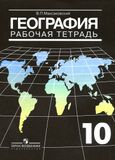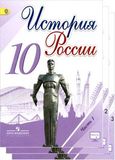Упр.4 Unit 2 Секция 1 Рабочая тетрадь 1 ГДЗ Enjoy English 10 класс
4. Заполните пропуски соответствующими вариантами ниже.
Джим: Я задаюсь вопросом, почему люди так мало знают о своих корнях в настоящее время. Они не заботятся о своей личности.
Тони: Что вы подразумеваете под личностью? Я не понимаю, что это слово на самом деле означает. (1) Оно используется много, оно определенно в моде в настоящее время, но я считаю, что (2) большинство людей, которые используют его, не знают точного значения. Это то же самое, что и «узнавание»?
Джим: Нет, не совсем. Узнавание ближе к тому(3), чтобы быть популярным, когда вас (4) будут узнавать; люди будут узнавать вас на улицах, как известного человека.
Тони: А личность?
Джим: Личность это то, как вы отождествляете себя. Что в глазах твоих составляет вашу личность? Какие вещи очень важны для вас? (5) Что отличает вас от других людей?
Тони: Может ли это быть национальность, язык, или музыкальные вкусы?
Джим: Всё. Для разных людей идентичность означает разные вещи.
Тони: И какая она у вас?
Джим: Я человек мира, (6) хотя я ценю свои корни. Я говорю на трех языках: русском, так как я живу в России, английском – так как это иностранный язык, который я изучаю в школе, и украинский - так как моя мама, бабушка и дедушка (7) из Украины. Все три языка относятся к моей личности. Я был бы другим человеком, если бы(8) я не был в состоянии общаться с англо-говорящими интернет сообществами, или, если бы моя бабушка (9) не читала бы мне украинские народные сказки, когда я был маленьким ребенком. Так что я космополит, который ценит различные культуры.
Тони: Я понял. А какой на счет моей личности?
Джим: Только ты можешь сказать это.
Тони: Могу ли я сказать, что это город, в котором я родился? Его среда сделала много (10) для формирования моей личности. Или рок-музыка, которую я играю, которая много значит для меня?
Джим: Да, конечно. Вы можете идентифицировать себя как рок-гитариста из Лилля. Это звучит хорошо.
Решение #
1 b)
2 a)
3 d)
4 a)
5 b)
6 d)
7 c)
8 c)
9 d)
10 c)
Приведем выдержку из задания из учебника Биболетова, Бабушис 10 класс, Дрофа:
4 Fill in the gaps with the appropriate options below.
Jim: I'm wondering why people know so little about their roots nowadays. They don't care much about their identity.
Tony: What do you mean by identity? I don't understand what this word actually means. (1) it’s used a lot, it’s definitely in fashion at the moment, but I reckon that (2) most people who use it don't know the exact meaning. Is it the same as recognition?
Jim: No, not exactly. Recognition is closer to (3) being popular when you (4) gain recognition; people will recognize you on the streets, as a famous person.
Tony: And identity?
Jim: Identity is how you identify yourself. What in your own eyes makes up your personality? What things are very important to you? (5) What differs you from other people?
Tony: Could it be things like nationality, the language, or tastes in music?
Jim: Anything. For different people identity means different things.
Tony: And what's your identity?
Jim: I'm a man of the world, (6) though I value my roots. I speak three languages: Russian as I live in Russia, English — as this is the foreign language I study at school, and Ukrainian — as my mum and grandparents (7) are from Ukraine. All the three languages add to my identity. 1 would be a different person if I (8) weren’t able to communicate with the English-speaking Internet community, or if my grandma (9) hadn’t told me Ukrainian folk tales when I was a little kid. So I'm a cosmopolitan who values different cultures.
Tony: I see. And what's my identity?
Jim: It's only you who can say it.
Tony: Can I say that it's the town I was born in? Its environment did a lot (10) to shape my personality. Or rock music that I play and that means a lot to me?
Jim: Yes, certainly. You can identify yourself as a rock guitarist from Lille. Sounds OK to me.
Популярные решебники 10 класс Все решебники
*размещая тексты в комментариях ниже, вы автоматически соглашаетесь с пользовательским соглашением





